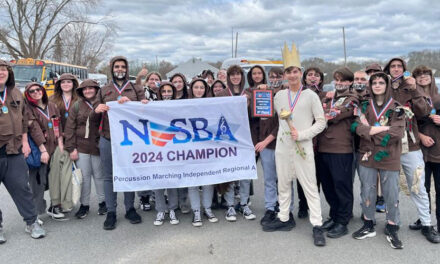BOSTON – New initiatives, including new financial support for health care providers, expanded relief for small businesses, and a new federal waiver request to give the state expanded flexibility to respond to the public health emergency, have been announced by the Baker-Polito administration to support the ongoing COVID-19 response.
The administration also joined life sciences leaders to highlight a new partnership to provide additional medical supplies for hospitals.
Other initiatives included in this action by the administration include new tax penalty relief for businesses and further action to limit the need for customers to visit the Registry of Motor Vehicles (RMV) in person intended to support the commonwealth’s residents and communities throughout the COVID-19 outbreak.
Financial support for health care providers: The administration’s COVID-19 Response Command Center continues to identify and prioritize efforts to ensure the commonwealth’s health care system has the resources it needs to support the response to COVID-19.
The administration has announced a $200 million infusion in cash at MassHealth for critical, acute care and safety-net health care providers, as well as for certain health care providers required to help ensure that members receiving care in the community or nursing facilities do not need to go to the hospital. These will be accelerated payments and cash advances for immediate, stopgap relief to ensure the front line health care system is able to provide necessary resources to patients.
Emergency Supply Hub: Life sciences industry leaders joined the administration to highlight the new Massachusetts Life Sciences Emergency Supply Hub. MassBio, in partnership with MassMEDIC, the Massachusetts Health and Hospital Association, and the Conference of Boston Teaching Hospitals, launched the Supply Hub to help coordinate efforts aimed to bring additional supplies and resources to the commonwealth’s health care institutions as they test and treat patients with COVID-19.
The initiative calls on life sciences and health care organizations in the state to donate supplies needed to combat COVID-19. MassBio will share information with the Department of Public Health (DPH) to triage and connect supplies with those healthcare providers that need them.
New drive-through testing site: The commonwealth’s first large-scale drive-through COVID-19 testing site launched at CVS in Shrewsbury. The new site is the result of an ongoing partnership between the Baker-Polito administration, the federal government, local health authorities and CVS.
The site is designated for emergency personnel and first responders, expanding testing access to front line workers. Currently, this site is one of over 40 sites launching throughout the country, with test kits supplied by the federal government.
MassHealth waiver and other requests: Massachusetts is filing a waiver request with the Centers for Medicare and Medicaid Services (CMS) that will give the state and its Medicaid program, MassHealth, more flexibility to respond to the COVID-19 public health crisis.
If allowed, the waiver would enable the commonwealth to fast-track MassHealth enrollment, streamline administrative requirements for providers and deliver critically needed health care services easier during the COVID-19 emergency.
Through the waiver request and other federal requests, the commonwealth is seeking flexibility to address key areas of need:
• Allow for non-traditional sites of care to expand surge capacity, such as use of testing tents and overflow hospital sites;
• Allow new providers, including out-of-state providers, a streamlined pathway to practice in the state, including caring for MassHealth members;
• Allow physician assistants to practice independently;
• Provide flexibility to hospitals and skilled nursing facilities to meet increasing demand;
• Expand MassHealth Hospital-Determined Presumptive Eligibility to all individuals, which MassHealth already expanded through a public health order last week, including children, older adults and individuals who have received MassHealth benefits within the past 12 months;
• Allow medications to be delivered to members, and waive a signature requirement for these prescriptions;
Waive face-to-face requirements for certain services, including home and community-based services, and behavioral health evaluations for Schedule II-IV prescriptions.
In addition, the administration announced that MassHealth and the Health Connector will protect coverage for all individuals who have Medicaid coverage as of March 18, 2020 and for all individuals approved for coverage during the national emergency.
Expanded small business resources: Last week, the administration announced a $10 Million Small Business Recovery Loan Fund to provide financial relief to small businesses and nonprofits impacted by COVID-19. On March 20, the administration announced that MassDevelopment’s Board of Directors will vote on a partnership that will make an additional $10 million available for the Small Business Recovery Loan Fund.
The state-level emergency loan fund’s purpose is to provide crucial resources for small businesses that will supplement important federal relief. On March 17, Baker formally requested disaster relief from the federal Small Business Administration (SBA), which has been granted. Massachusetts businesses impacted by COVID-19 may now apply for low-interest loans.
Tax relief for businesses: The Baker-Polito administration has announced tax penalty relief to support businesses affected by COVID-19. The Department of Revenue (DOR) will waive any late-file or late-pay penalties for returns and payment due for meals and room occupancy taxes between March 20 and May 31, 2020.
Limiting need for in-person RMV visits: The administration is taking further action to limit the need for customers to visit the Registry of Motor Vehicles (RMV) in person.
Baker issued an order allowing the RMV to extend vehicle registrations and modify the conditions of registrations, plates and titles. It also enables the waiver of certain inspection requirements.
Workforce guidance for schools: Baker recently ordered all elementary and secondary schools to close for educational purposes until April 6.
Recognizing that local school districts employ a significant number of hourly employees, the Department of Elementary and Secondary Education (DESE) is issuing guidance to local school districts recommending they continue paying hourly employees, while suggesting these employees continue to engage in professional development.
Smoke alarm inspections: Baker issued an order making a change to the inspection statutes that require a smoke and carbon dioxide alarm inspection prior to a residential real estate transaction.
The order would permit the inspection to be deferred if the buyer contractually assumes responsibility for installing the detectors and the subsequent inspection happens within 90 days of the conclusion of the COVID-19 emergency.





